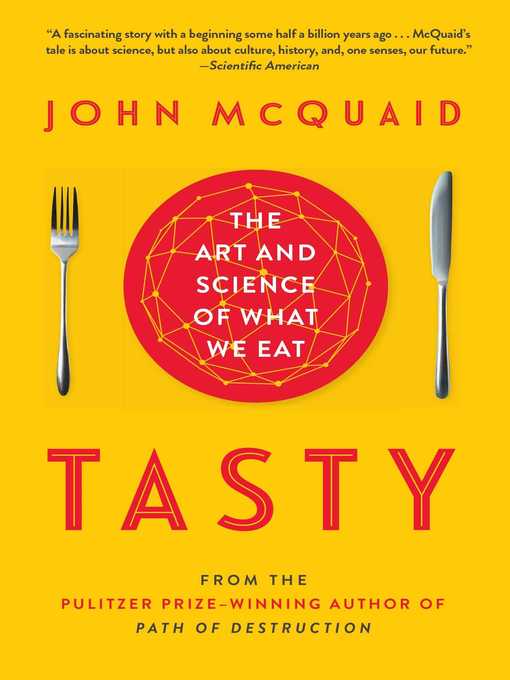
Can't resist the creamy smoothness of butter? Blame Darwinian natural selection. Crave the immediate zing of sweets? They bathe your brain in a seductive high. Enjoy the savory flavors of grilled meat? So did your ancestor Homo erectus. Coffee? You had to overcome your hardwired aversion to its hint of bitterness and learn to like it. Taste is a whole-body experience, and breakthroughs in genetics and microbiology are casting light not only on the experience of french fries and foie gras, but on the mysterious interplay of body, brain, and mind.
Reporting from kitchens, supermarkets, farms, restaurants, huge food corporations, and science labs, Pulitzer Prize-winning journalist John McQuaid tells the story of the still-emerging concept of flavor and how our sense of taste will evolve in the coming decades. Tasty explains why children have bizarre and stubborn tastes, how the invention of cooking changed our brains and physiology, why artificial sweeteners never taste quite right, why name brands really do taste better, how a 100,000-year-old walkabout by early humans is responsible for George H.W. Bush's broccoli-hatred, why "supertasters" like salt, and why "nontasters" are more likely to be alcoholics.
"A fascinating story with a beginning some half a billion years ago...McQuaid's tale is about science, but also about culture, history and, one senses, our future" (Scientific American). Tasty offers a delicious smorgasbord of where taste originated and where it's going—and why it changes by the day.
-
Creators
-
Publisher
-
Release date
January 13, 2015 -
Formats
-
Kindle Book
-
OverDrive Read
- ISBN: 9781451685022
-
EPUB ebook
- ISBN: 9781451685022
- File size: 1039 KB
-
-
Accessibility
-
Languages
- English
-
Reviews

Loading
Formats
- Kindle Book
- OverDrive Read
- EPUB ebook
subjects
Languages
- English
Why is availability limited?
×Availability can change throughout the month based on the library's budget. You can still place a hold on the title, and your hold will be automatically filled as soon as the title is available again.
The Kindle Book format for this title is not supported on:
×Read-along ebook
×The OverDrive Read format of this ebook has professional narration that plays while you read in your browser. Learn more here.